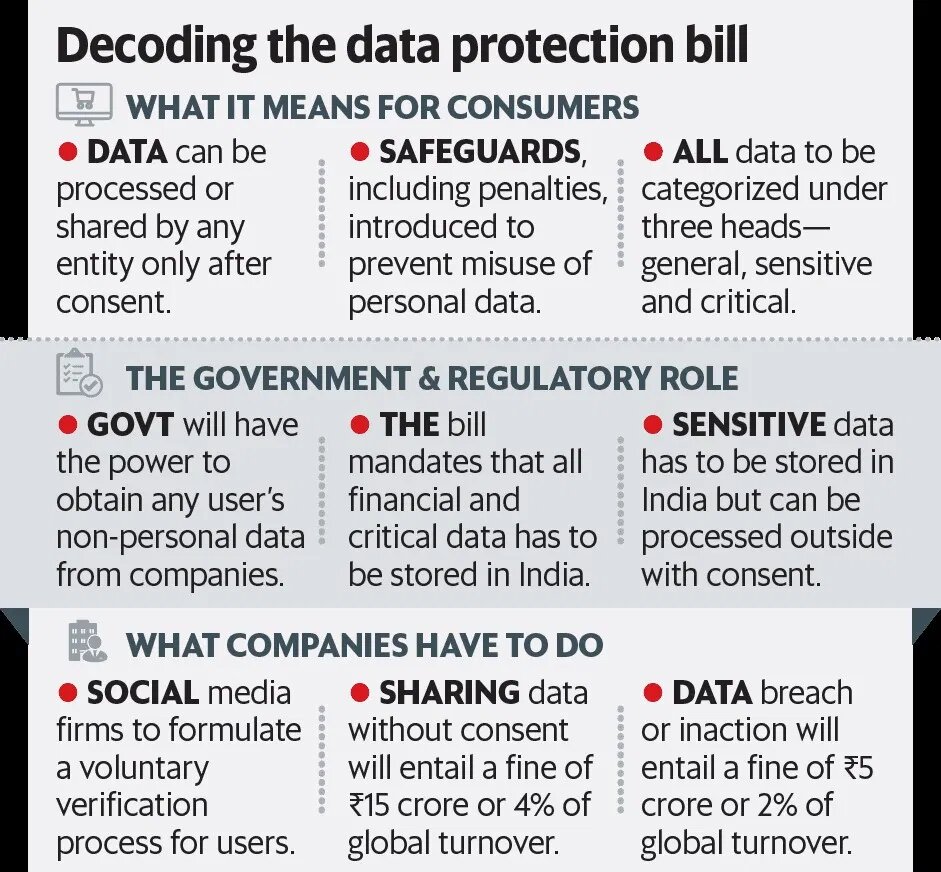Science & Technology
Banning of Chinese Mobile Apps
- 03 Jul 2020
- 7 min read
This article is based on “Control, not delete: On China apps ban” which was published in The Hindu on 02/07/2020. It talks about the recent ban on Chinese mobile apps by the Indian Government.
Recently, the Indian government announced it would block 59 widely used apps (such as Tik Tok, ShareIt, Cam scanner etc.), most linked to Chinese companies. The Ministry of Electronics and Information Technology (MeitY), invoked Information Technology (IT) Act, 2000 to cite the concerns regarding both data security and national sovereignty associated with these apps.
Though the government has proposed this ban from the perspective of data security and privacy, the action seems to form a part of the retaliatory strategy against Chinese incursions in Ladakh.
Given that India’s digital economy is one of the largest markets in the world, such a ban will certainly have an impact on the valuations of Chinese companies. However, such a move is likely to have an impact on the India-China border dispute.
Merits of this Ban
- No Longer Reliance on Passive Diplomacy: The decision to ban these apps, which comes amid continuing tensions between India and China, is the clear message from India that it will no longer be a victim of China’s Nibble and Negotiate policy and will review the norms of engagement.
- Hurting Chinese Ambition: The ban may affect one of China’s most ambitious goals, namely to become the digital superpower of the 21st century.
- Recognising Importance of Data: India’s app ban, and consideration of related restrictions on telecom hardware and mobile handsets, is based on the recognition that data streams and digital technology are a new currency of global power.
Associated Issues
- Data Privacy Issue Not Limited to Chinese Apps: MeitY banned apps on reports of stealing and transmitting users data in an unauthorised manner to servers which have locations outside India.
- However, data privacy and data security concerns are not limited only to Chinese apps.
- Damage Done Already: The apps that were banned were very popular in India and the move to block them comes after these apps had already amassed hundreds of millions of users in India.
- India’s Economic Dependencies on China: The ban on Chinese mobile apps is a relatively soft target, as India remains reliant on Chinese products in several critical and strategically sensitive sectors.
- From semiconductors and active pharmaceutical ingredients to the telecom sector, Chinese vendors are involved not only in India’s 4G network but in on-going 5G trials as well.
- Also, Chinese finance is presently essential to sustaining India’s start-up economy. As many Indian Unicorns such as Paytm, Zomato, Byju’s are having Chinese shareholders.
Way Forward: Strengthening Data Security Architecture
- Weeding Out Obsolete Legislations: India’s digital applications are governed by obsolete laws, which is unsuitable in the context of today’s digital scenario.
- Information Technology Act, 2000 (20-year-old law) was designed for the business process outsourcing ecosystem, not for modern digital applications or platforms.
- Similarly, the Copyright Act, which provides incentives and protections for most of the content that sits at the heart of the digital economy, was last amended in 2012.
- Thus, there is a strong case to revise the key legislations and syncing them to change the digital environment.
- Need For A Data Protection Law: Data privacy and security remains to be major challenges emanating from the ongoing digital revolution. Thus, a data protection law is long overdue.
- In this context, the Indian parliament must expedite the enacting of the Personal Data Protection (PDP) Bill, 2019.
- Need For Developing Alternatives: The ban initiated by the Indian government for securing citizen’s data is nothing new.
- Similar moves have been taken by China, as mobile apps like Whatsapp, Facebook have been banned in China for years. However, the Chinese government was quick to provide the local alternative to its billions of users.
- Even today, these equivalent Chinese services like WeChat, Weibo pose a decent competition to established global digital players.
- Thus, the recent ban is a good opportunity for Indian entrepreneurs to quickly rise to fill market gaps.
World today recognises that the next source of economic growth lies in the digital economy and given its raw material being data, thereby whoever decides standards and builds the electronic backbone will have enormous advantages over everyone else.
Thus, India must speed up indigenisation, research and development and frame-up a regulatory architecture to claim data sovereignty.
|
Drishti Mains Question Data is the currency of the 21st century, therefore, India must speed up indigenisation, research and development and frame-up a regulatory architecture to claim data sovereignty. Discuss. |
This editorial is based on “Lax on safety: On Neyveli and Visakhapatnam disasters” which was published in The Hindu on July 2nd, 2020. Now watch this on our Youtube channel.





